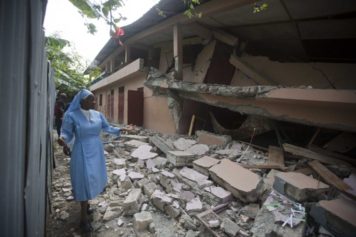Three years after a catastrophic earthquake rocked Haiti, the country has still not fully recovered. But one Haitian-American entrepreneur seeks to address his native country’s need through business development–and he’s rallying other Haitians to do the same.
Right after the 2010 earthquake, Jean Orelien, the CEO of SciMetrika, a public health consulting firm in North Carolina, offered his company’s services. He traveled to Haiti with a group of statisticians to survey residents so that aid organizations could better meet their needs. Initially, Orelien hoped to create a nonprofit that would focus on public health efforts in Haiti and other countries. But after seeing so many nonprofits come to Haiti, he decided that the country would benefit more on economic development. “What the country needs from me is my contribution as a businessman, to help create jobs,” he says.
His first step: building Club Azura, a mixed-use development that will include a hotel, residential and retail space. Orelien chose the project for its ability to create jobs as vast amounts of labor are required for both construction and hospitality.
Orelien believes Club Azura has the potential to spur local entrepreneurship as well. The development will attract Haitian-American tourists, he says, who will be potential customers for Haitian merchants and artisans. “What we’re seeing now is that people want to create more formal businesses, as opposed to doing business in the underground economy,” he says. Club Azura is well placed to attract a wide customer base: it is located on Haiti’s border with the Dominican Republic and is only 14 miles away from Port-au-Prince, Haiti’s capital.
Club Azura isn’t the only project Orelien is backing. He has organized a group of Haitian-American entrepreneurs to launch a transportation company, which will provide rental car, taxi, and shuttle services for both residents and tourists. Currently, Orelien says, travelers in the country have few alternatives to public transportation vehicles, which are often crowded and poorly maintained. “If you want to go somewhere, you have to rely on an informal network,” he says. “There isn’t a company you can call”…
Read More: inc.com


